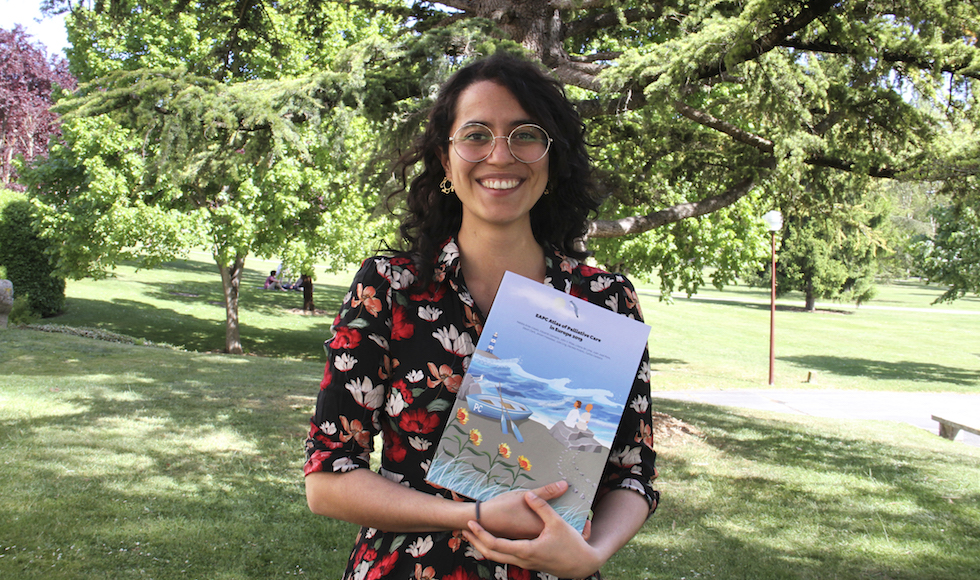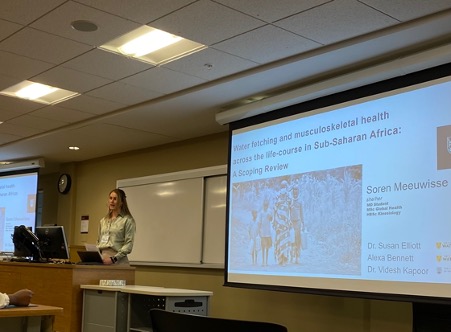Let’s make global palliative care a public health priority

Each year, an estimated 4.5 million Europeans die in need of palliative care. It’s a global health issue that Natalia Arias-Casais is working to address. The MSc Global Health program graduate and her research team have launched the 2019 Atlas of Palliative Care in Europe, a regional study that assesses the development of palliative care across the region. The aim is to provide evidence-based solutions to the lack of access to care and pain relief for people facing life-limiting illnesses.
“The issue of palliative care and lack of access isn’t solely an issue in Europe – we’re talking about a global crisis,” Arias-Casais says. “Health systems aren’t adequately prepared to integrate palliative care and meet the growing needs of populations.”
The Atlas includes data reports from 321 international experts from 51 countries and identifies 6,388 services specializing in palliative care in the region. 47% of these services are concentrated in Germany, the United Kingdom, France and Italy. 40% of European countries have half or more of the number of services recommended by the European Association for Palliative Care (EAPC). Children are also affected, with 140,000 European children dying every year in need of palliative care.
Commissioned by Institute for Culture and Society at the University of Navarra in Spain, the Atlas is supported by the World Health Organization, which recognizes palliative care as an essential service of primary health care. It’s also Arias-Casais’ PhD thesis. She hopes the Atlas will be used policy makers, palliative care advocates and service providers to reduce health disparities and strengthen health systems.
“I feel that we as a global health community have a responsibility to recognize palliative care as a public health priority and take steps to improve the quality of life of people with serious health-related suffering,” says Arias Casais.
Arias Casais credits McMaster with helping her channel her skills and experience toward a cause she feels passionate about. “The Global Health program helped me to address palliative care as a global health issue, to advocate for it at the World Health Assembly, and to actively contribute to alleviating the access abyss.”
Arias-Casais also recently co-authored an editorial in the Lancet Global Health on the need for action in global palliative care.
Student and Alumni ProfilesRelated News
News Listing

A Journey from Research to Advocacy: Global Health Alumna’s Impact on Health Equity
Student and Alumni Profiles
October 17, 2024

“My work does not only come from a place of intellectual curiosity, but also shared grief”: Dr. Zoha Salam’s Journey as the Second Global Health Doctoral Program Graduate
Global Health News, Student and Alumni Profiles
June 20, 2024

PhD Student Tackling Intimate Partner Violence in Resource-Constrained Settings Receives an IDRC Doctoral Research Award
Student and Alumni Profiles
February 28, 2024
